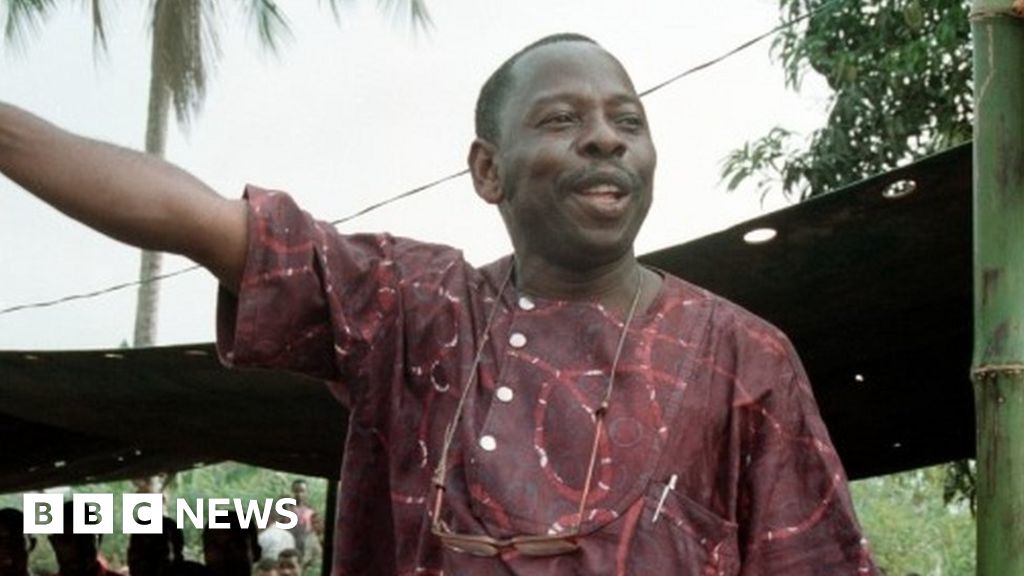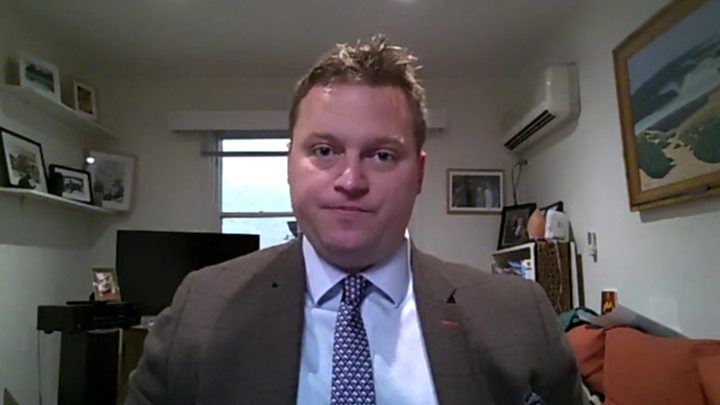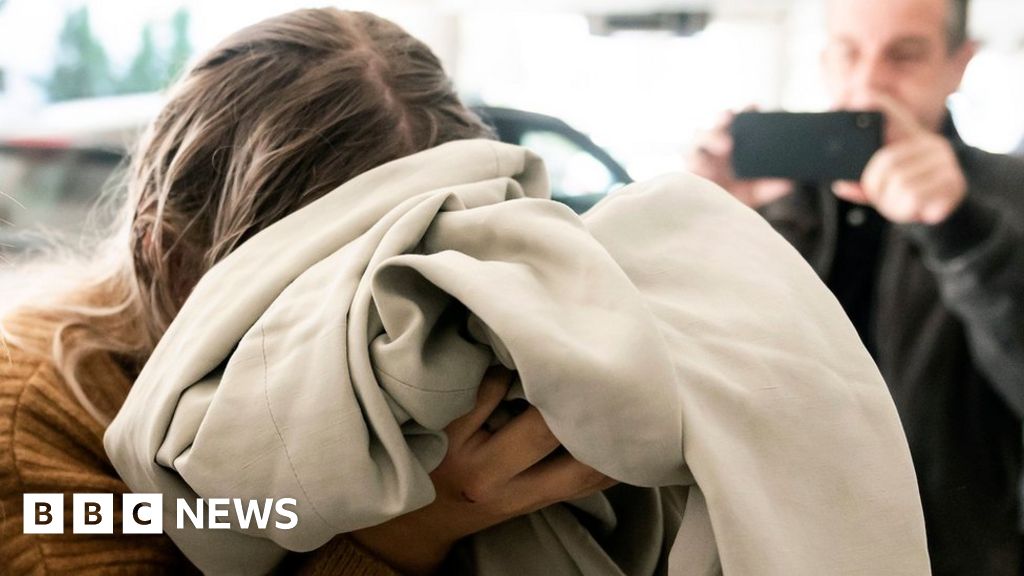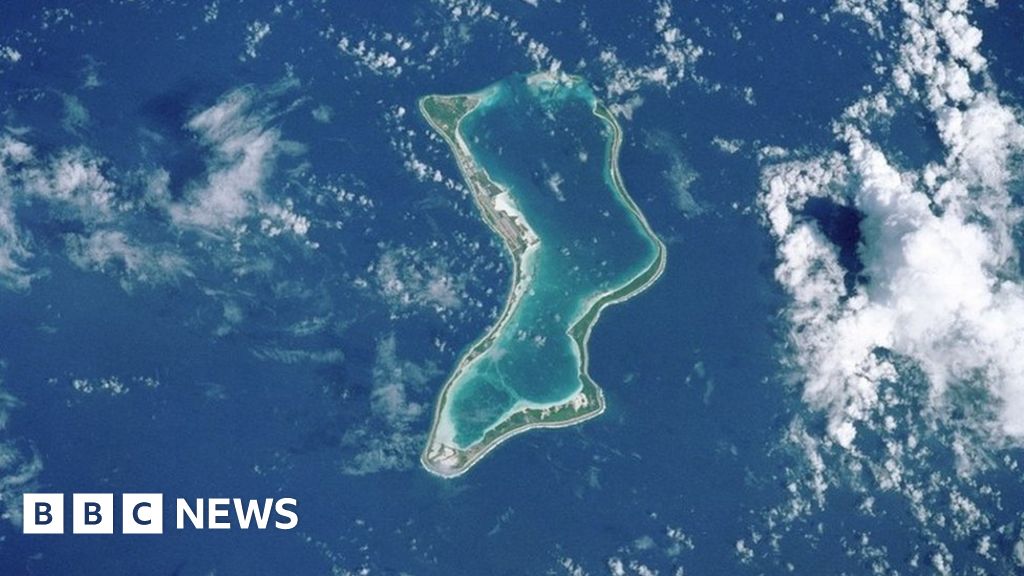
The UK and US considered a navy-backed oil embargo against Nigeria, following the 1995 execution of writer and activist Ken Saro-Wiwa, a document released by the UK government reveals.
Saro-Wiwa and eight other campaigners from the Ogoni ethnic group were hanged on 10 November 1995.
They had been found guilty by a secret military tribunal of the murder of four Ogoni chiefs by a mob.
The nine denied the charge and said they had been framed.
Saro-Wiwa led mass protests against oil pollution in Nigeria's Ogoniland.
The protests were seen as a major threat to Nigeria's military ruler at the time, Gen Sani Abacha, and Anglo-Dutch oil giant Shell.
The executions led to Nigeria suspension from the Commonwealth.
The UK's then Prime Minister, John Major, called it a "fraudulent trial" and described the executions as "judicial murder".
Notes of a meeting between Mr Major and US President Bill Clinton, nearly three weeks after the executions, show the steps the leaders contemplated to isolate Nigeria.
The two men met while Mr Clinton was on a visit to the UK.
According to the notes, the UK believed that an oil embargo would "only be effective" if done through the UN Security Council and "could only be made to work by a naval blockade".
Such steps would result in "wrecking Nigeria's economy" as it was heavily reliant on oil exports.
'Sycophants surround Abacha'
Mr Clinton agreed, but said the US would only implement an embargo if "all other parties" were willing to do so, pointing out that sanctions would be vetoed by China if brought before the UN Security Council.
There had been pleas from across the world for Nigeria's military leader at the time, Sani Abacha, to exercise clemency, but Western governments had struggled to reach the leader.
Mr Clinton's special envoy to Nigeria, Donald T McHenry, had been unable to see Abacha and concluded that he was "almost wholly insulated from the outside world" and "information was filtered by sycophants: they had no idea of genuine opinion within Nigeria or internationally".
Media playback is unsupported on your device
The hanging of the Ogoni campaigners took place just as Commonwealth heads of state were meeting in New Zealand for their biennial gathering.
The UK issued a statement condemning the executions, but it was South African President Nelson Mandela who led the international criticism.
He called for Nigeria to be suspended from the Commonwealth "at once" and that the suspension should not be lifted until the country had shown "much quicker" progress in returning from military to civilian rule. All political prisoners should be released, he argued.
In this, Mandela was backed by his Zimbabwean counterpart Robert Mugabe and Kenya's Daniel arap Moi, but the suggestion was criticised by a number of other African leaders, including Ghana's President Jerry Rawlings.
Mandela outspoken
The Commonwealth went ahead with the suspension, but Mandela was determined that the measures should not end there.
He continued his international engagement, making phone calls to Mr Clinton and keeping in touch with Mr Major by phone after the Commonwealth summit ended.
In demanding strong action Mandela appeared to have been isolated from the rest of his government.
Newspaper reports at the time indicate that then Deputy President Thabo Mbeki and the Deputy Foreign Minister, Aziz Pahad, had been reluctant to pursue sanctions against Nigeria.
The UK, together with the European Union (EU), took a number of steps.
Ambassadors to Nigeria were recalled, military training and aid were suspended and an EU-wide arms embargo was instituted.
While Mr Major was willing to consider wider economic sanctions, he was unwilling to do so alone.
The UK accounted for just 1% of Nigeria's oil exports, while the US took 40%.
As a result, Mr Major told Mr Clinton, "we were not well placed to press for [sanctions]".
The UK also had a good deal to lose if Nigeria retaliated.
Pressure from Shell
There was a considerable British expatriate community in Nigeria and UK investments in the country totalled between $3.9bn and $6.5bn (£3bn and £5bn).
This included Shell, which extracted half of the country's oil and was contemplating building a major natural gas project.
The Shell chairman at the time, Cornelius Herkströter, wrote to Mr Major at the height of the controversy, pointing out just how important these investments were.
He argued that the gas liquefaction plant would "make a major contribution to environmental improvement in the region" since it would reduce the need for the flaring of gas.
In the end, the problem of getting UN Security Council approval for an oil embargo appeared to have blocked progress on wider sanctions.
Nigeria was only re-admitted to the Commonwealth in May 1999, on the day on which the country's new civilian government assumed power - ending three-and-a-half years of isolation.
https://news.google.com/__i/rss/rd/articles/CBMiLmh0dHBzOi8vd3d3LmJiYy5jb20vbmV3cy93b3JsZC1hZnJpY2EtNTA4OTIzMDbSATJodHRwczovL3d3dy5iYmMuY29tL25ld3MvYW1wL3dvcmxkLWFmcmljYS01MDg5MjMwNg?oc=5
2019-12-31 09:05:07Z
CBMiLmh0dHBzOi8vd3d3LmJiYy5jb20vbmV3cy93b3JsZC1hZnJpY2EtNTA4OTIzMDbSATJodHRwczovL3d3dy5iYmMuY29tL25ld3MvYW1wL3dvcmxkLWFmcmljYS01MDg5MjMwNg



